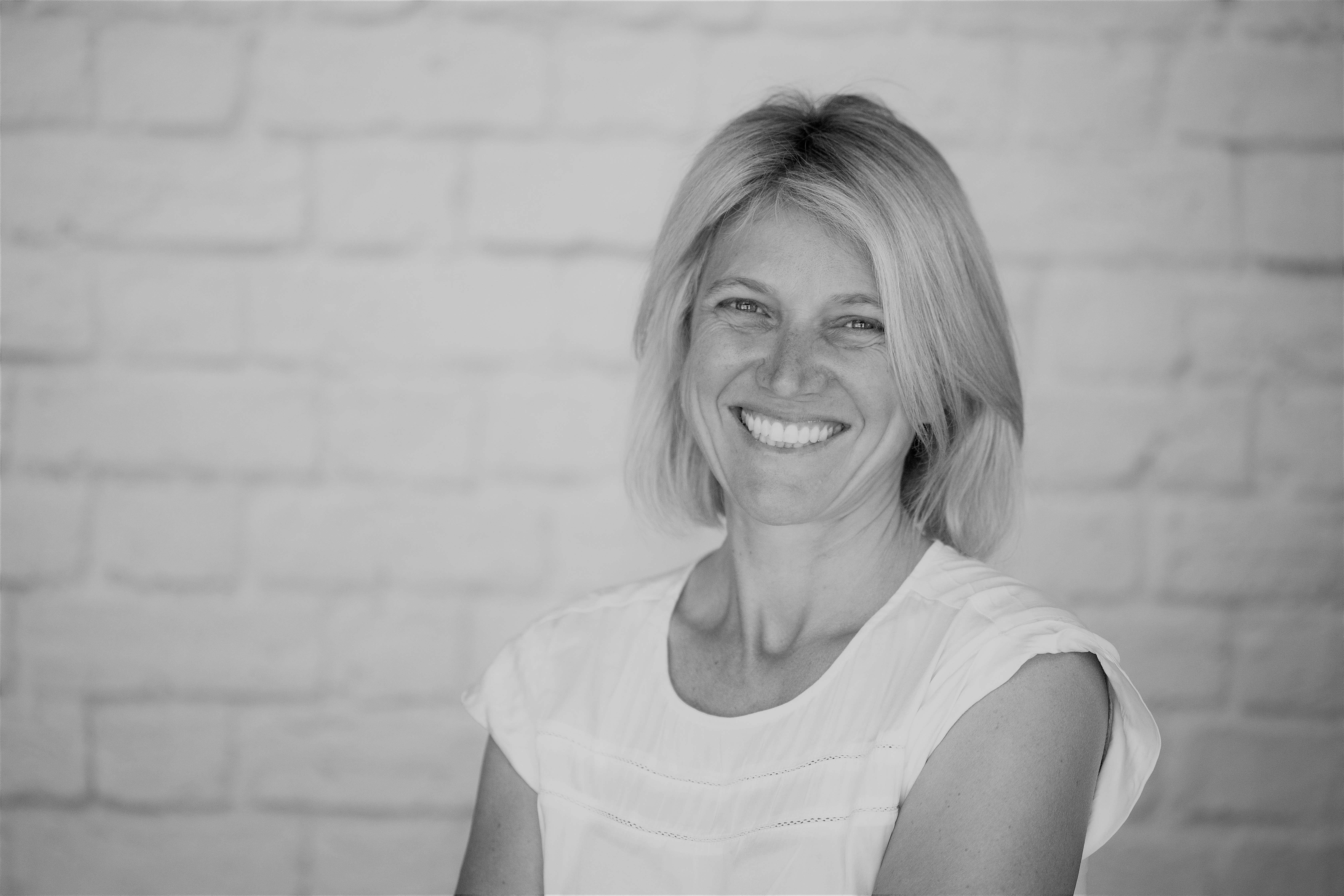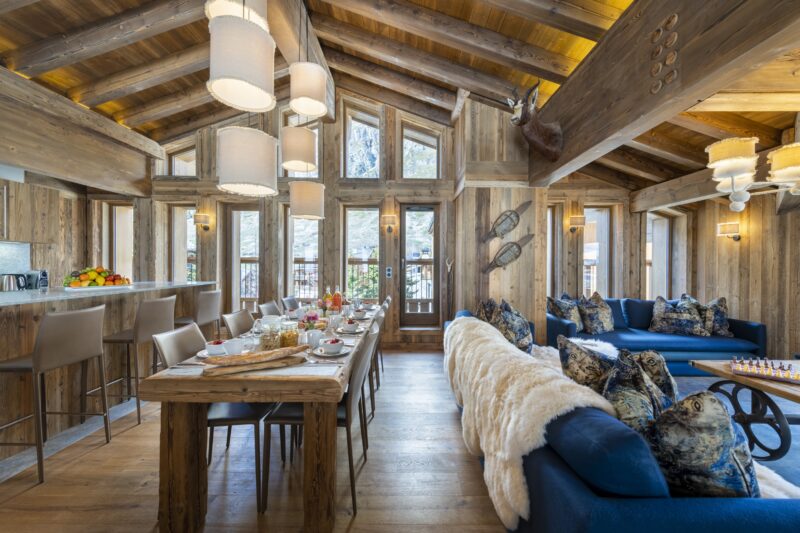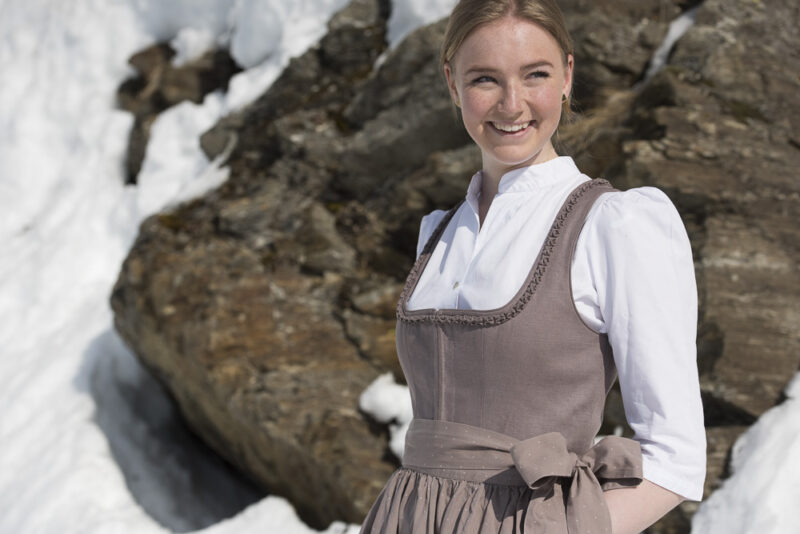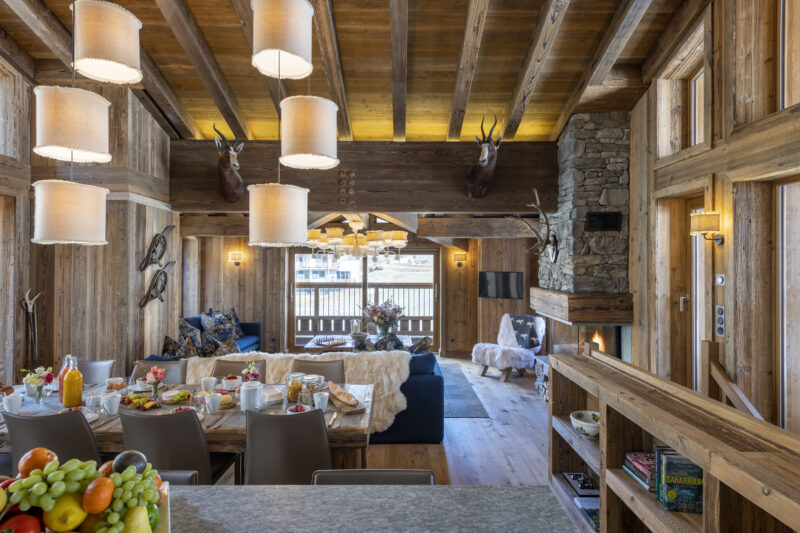
Monday afternoons have a propensity to be dreary. The weekend come down begins on a Sunday night. By Monday morning, the freshness of a new week can be somewhat dulled by a lack of enthusiasm for the tasks ahead.
Not this Monday.
It was resuscitated by a conversation with the vibrant Natasha Robertson, Co-Founder of Bramble Ski.
Natasha exudes energy. Bubbly yet focused, she has a steely determination underpinned by an innate kindness that makes her business a success. So much so, that Le Collectionist, a lead luxury property rental company, wanted to merge.
Bramble Ski was born in 2005, the brainchild of Natasha, her husband Duncan (now ex-husband), and friends Colin and Barry. This luxury rental company has a stunning collection of properties in Switzerland, Austria, and France. With chalets in the luxury resorts of Verbier, Zermatt, St. Anton, Lech, Meribel and Val d’Isère, Bramble Ski ensures guests are well cared for through superb food, exquisite wines, and scrupulously selected staff at some of the most desirable properties in Europe.
EBX: Tell me a little about your career pre–Bramble Ski?
I graduated from the University of East Anglia and then dotted around a bit before I really understood that I wanted to do something in the media. I fixed on advertising, and I got work placement in a small advertising agency in the middle of London. I basically got paid my train fare home, but it led to a job in the advertising department of a big electrical retailer. I jumped ship and went to the agency that provided the work for that retailer, Saatchi, and Saatchi. I worked there for a few years and moved to Ogilvy and Mather, another one of the top ten advertising agencies in London. I had an absolute ball. I was account manager, middleman between the client and the creatives, and I loved the excitement of it, the glamour of it. I loved how different every day was just being part of a creative process, and I know that about myself now. I really need to be involved in something creative. That was me for about ten years. I hit thirty and started thinking about a lifestyle change, a new adventure before I had children. That’s when I fixed upon the idea of coming out to the mountains for a winter to see if I liked it along with the other co-founders of Bramble Ski. We started off with one winter and one very middle ranking apartment.
EBX: You co-founded Bramble Ski in 2005, where did the idea come from? What was the niche in the market at that time and where did the name originate?
We had been on lots of ski holidays throughout our twenties in big groups of friends. We thought ‘that looks fun’ and we could probably do it. The first chalet was very middle market, we just had a vision for ourselves and the point of difference at the time was the ski instruction. We were going to be the skiers ski holiday company, we were really going to focus on the on-mountain experience. We saw ourselves as middle market, but with the ski instruction point of difference. Then the resort that we were in initially, Verbier, was becoming quite high end, and so as we got better at what we were doing. People were offering us better quality products and we upped our service level to match. There came a point where we thought, its quite a lot of effort to service a chalet for ten people, whether it’s a chalet at the £3000 a week or £30,000 a week, it still takes a similar amount of effort. As we learnt more, we provided a bit more service to those clients. At one point we thought we can go high end, that’s within our capabilities, we should and it financially makes sense.

I started the business with my ex-husband and a very dear friend from university, they were skiers. They had qualified as ski instructors just before we came out to do the season. Not long after, Barry joined us, leading to the four directors we have today.
I always refer to myself as the skiing equivalent of a lady who keeps their hair dry when she goes swimming. I really enjoy it, but I am not very good. What attracted me to skiing was it was so different to London and where I’d been for the last ten years. I saw it as an exciting opportunity to create something new, somewhere new.
In early 2000 companies were named Apple, Blackberry and Orange. Duncan and his friend are both Scottish and came up with the name Bramble. I said it was a terrible name and coming from an advertising background I would come up with something better! And I couldn’t! It was a good name, something different. There were so many names at the time, with reference to mountains and peaks, so we stuck with it.
EBX: What took you to Le Chable, Valais, Switzerland? Was that pre or post Bramble Ski?
We properly relocated after the first two seasons. Until that point, we continued working as a safety net. We decided after two seasons that we needed to figure out if we were going to make a proper go of it. If we were, we should spend all our time in the mountains and not have any other jobs.
EBX: When/how did the merger with Le Collectionist come about?
A lot has been happening in the short-term rentals market in the last few years. Le Collectionist started their business eight years ago and they wanted to consolidate the luxury villa market and offer a level of quality that was consistent. That was what we have been doing in the ski market for the last ten years. That was our goal; to be the best ski resorts across the Alps and to focus on reaching a critical mass in the resorts that we are in. We want to be able to offer a consistent service across those resorts. We are quite unusual as a chalet holiday company, to be in multiple countries and different resorts. 15 years ago there were some players in different countries, but that changed with the 2008 crisis. Many had to change their business models, and Switzerland also became an expensive country to operate in. Le Collectionist knew that ski chalets were part of that European villa market, and they were looking for a match in the ski industry, so we were lucky that we aligned values and it was just a really nice fit. It took between six months to a year to complete the sale, and it was nice, as you get to look at your business through some else’s eyes and you see what you’ve achieved.
EBX: Tell me about your business model?
The difference between our model and others in the villa/chalet market is that we don’t own our properties. That is normal in our business, but the relationship with the individual owners is different in that we have exclusive use of their property. We don’t take all the risk for selling the property ourselves. Lots of companies pay a lump sum for the whole season to the owners, the owners let the operators sell it after. If we sell a week the owner gets the money for that week, if we don’t sell a week, then it’s the owner’s risk. In that way we don’t have difficulties with empty chalets. We are clever with forecasting, and how much we will sell. We are realistic, we keep the owners that we do have happy. We also start up differently. I don’t employ a dedicated team for one property for the whole season, instead I move teams in and out of properties in a resort. It is a flexible business model, it is a lot of work at the back end, but it is less risky and more profitable. We work a lot with agents who sell our holidays around the world, we have about 650 agents, and we sell direct too. One of our strengths, is our network of agencies.
EBX: What is the brand excellence? USP?
We have kept hold of the ski instructors’ profile that we had at the beginning. We call ski instructors, ‘Bramble Ski Pros’. When guests book a holiday with us, they will have a Bramble ski pro allocated to their booking. That person will receive information from the pre arrivals team, to plan everything before guests arrive. People are planning now what table they want to sit at, at which restaurant for the last week of March 2022. The information is handed to the Bramble ski pro who acts as the concierge for the rest of the stay. They are highly qualified ski instructors, but they also know where the best spot is for a drink to watch the sun go down or tree lined skiing. They manage the out of the chalet experience for the guests, for example they can book Heli ski or childcare. That is unique, there isn’t any other company that does that. The pro will be with you for the first two days of your holiday to instruct and after that act as concierge. You can book them for the rest of the stay if you feel like you need more ski instruction. The pro as concierge is a different approach and it helps us with a seamless service. You are often in a chair lift with your instructor, and you would chat about how the food is, how things are at the chalet, and that means that the pros can pick up on something and call the chalet staff and sort out whatever is missing or needed by the time you get back. The driver can be called by the pro when they are coming down the hill so that by the time they arrive at the bottom, your driver is there looking beautiful with the hat on, and you can jump into the van. The service is on the mountain as well as in the chalet.
We are a Swiss company; we aren’t a British tour operator, and we are proud that. We are putting back into the community that we are making our money in. We follow all the local laws, that means that our team are well looked after.
The training that we provide to our teams is so good, we work with the EHL, the Ecole Hotelier de Lausanne, it’s the number one hotel school in the world. When our staff begin their two weeks of training, they start at EHL. We overlay that with everything we know about international styles of service, for example we can service a table in Russian style or English country house style, whatever the guest wants we can provide. We invest heavily in training.

Our uniforms are also so different and Alpine. We didn’t want the polo shirt with the logo on it, we don’t want to look like a tour operator. When you turn up to a chalet you want to feel it is an Alpine experience, the uniform helps that, it makes you feel like you really are in the mountains.
EBX: What impact has Covid had on you directly?
Covid happened towards the end of the ski season for us, March 2020. At first, we had to get guests home and team members home and we didn’t know what the long-term impact was going to be. But we were very fortunate, we were given a lot of help from the local government in France, Austria, Switzerland. We were able to pay our team members for the season. We have a core team of about 30 at our head office, and that government assistance really helped. We were super lucky to be in Switzerland, as they opened their resorts last winter, where France and Austria stayed closed. In business terms I can say that we had an OK winter, we had lots of people who came and stayed for long periods. You can’t escape the seriousness of Covid. I wouldn’t say it was a good time for us, the impact of Covid has been devastating for families, some losing family members and people suffering with long Covid. We have been impacted in the same way as everybody else. We had to priortise being compliant with all local regulations.
The whole world has learnt that the unimaginable can happen and you can adapt. We live by that, there is always a solution. We were very fortunate; Colin our Chief Financial Officer was brilliant at getting applications in for assistance and we didn’t make any knee jerk decisions. We have been fortunate and very grateful.
EBX: How do you see the European economy changing in the medium-term?
Things have opened, the UK has opened more. Within Europe there is a certain amount of fluid travel now. I expect France and Austria to open their resorts this winter. As much as we have had to be careful with the spread of the disease, there is an impact on people’s mental health while lock done restrictions continue and a financial impact on businesses. The government is trying to balance. They see there is a need to open and let the economy start moving again and maybe stop borrowing as much as they’ve had to. I believe there will be a positive counter effect from Covid 19. From what I’ve seen, people who worked in hospitality and had to look elsewhere for employment during Covid have seen that they should be paid well for what they are doing. They should work reasonable hours. If you can pay one person to do eighty hours, you can pay two people to do forty hours. We in the hospitality industry will have to look after people better. We may have to charge more for our services, but that is a good pay off. I think it’s good that people are saying ‘it’s hard to find staff now as they have all gone off and got better paid jobs’ well let’s look to ourselves and change that. As a company we are still cautious about how we are budgeting. Sales are good for us; we are well ahead of target for next season. That’s a good indicator for us.
EBX: In your opinion, how has the tourism market evolved over the last 15 years?
I am delighted to see that we are paying more attention to what to the individual wants. We are making less assumptions and listening more to what our guests want and tailoring to their requirements. It’s like coffee. Everybody now has their coffee the way they want it. At first, we were shocked and disgusted that people would dare to tell someone how they would like their coffee, now we take it for granted. I think it’s the same in hospitality. Instead of thinking we are five star, and this is what happens in five star, we now ask how people want to do things, what is important for them. That is luxury, luxury is having what you want how you want it.

EBX: Which recent innovations are impacting on your business?
Our internal systems are so much better at tracking and keeping data so that we can do a better job of making sure that guests receive what they want when they come back again. The hotel industry has been ahead of the short-term rentals industry on that front for a while. We are catching up. Our internal system is bespoke. I am fascinated by all the new stuff, augmented (AI) and virtual reality (VR). A big part of holidaying is anticipation, how many times have we looked back at the website at photos when we are looking forward to the holiday or choosing one? I think augmented reality will become a thing, it will be cool when you get to a resort, and you experience an AI reality version of your destination. It will add to your experience. Being able to have a virtual experience before you go. These are tools that will be taken up by our industry.
EBX: What motivates you most – in practical terms, and in emotional terms?
I am a subscriber to the Robert Green theory that everything is driven by emotions. I feel like even if I say to myself its practical, it is my emotions that drive my decisions. Creativity and newness are things that I know I love. I also wonder what can we do better? How can we make this team more professional? Who is the best in the world? How can we get them to help us? I really enjoy that, making things better and it doesn’t have to cost more. I am really stimulated by creativity and popular culture. I also love people, especially my team. I fall in love with them every year, working with the people that I work with, so varied and skilled, I find that a real joy.
EBX: Who have you learnt most from? What are the five key lessons you learnt from them?
My mum passed away four years ago, and I learned big life lessons from her. I was a forces child and often lived on the base. My mum was the housekeeper for the base commander. She had this instinct for service, hospitality and creating a beautiful environment. She was very creative at dressing tables and arranging flowers and she was a great cook. I got a lot of that from my mum. Also, her attitude towards adversity. It is how you decide to think about a situation. Mum was a strong believer in that, she would say ‘you have to make up your mind to enjoy it Natasha’. I got that from her, that positivity, it makes you adaptable. The idea that there is always a solution. The nurturing side is always important as well in hospitality.
There was a woman who did our training years ago when we needed a lift, a lady called Jane Urquhart, she started the London Academy (for Household Staff). She came in and just made us all sit up straighter, she was great at service. She tells the story about how she had lots of money and then none. She had so much practical information about looking after people, and thinking about guests by personality types. She was a great inspiration to me.
EBX: Which nations do you admire most in terms of business acumen? Why?
The Swiss do a very good job of managing their money. They are planners. They take care of things. In business they look out for risks and ensure themselves against risk as much as possible. I love the flair of the French in marketing and branding, they are at the top of their game. I love the creativity of the British. I don’t know another nation that is as entrepreneurial as the British. I find the British are just super sophisticated. They seem to be in advance of other European nations when it comes to popular culture, there is so much innovation and that has got to be admired.
EBX: What is the single most important principle for creating a successful business?
Listening. Listening and adapting. You must listen to clients, staff, and stakeholders, and you must adapt. You can’t have principles that don’t allow you to flex and change with the times.
EBX: What is your single most important source of inspiration, and why?
Music. For me the idea that you can create something perfect in three minutes that moves you, that you can listen to a thousand times, every note and bit of it works, I really get inspired by music.
I love the idea that you can create something that is bigger than the sum of its parts. For me, that is what our business is and what our teams do when they step into a chalet and they create these moments for our guests. I can’t live without music.
EBX: Who are your leadership role models? Why?
For me its about female leaders because I feel passionately about inequality. There is something so fundamentally wrong with society. 50 percent of the population are not properly represented. I admire any women that are pushing the boundaries, Oprah Winfrey, Michelle Obama. Its our job, my job, to make sure that women are being fairly represented in business. The Prime Minister of New Zealand, Jacinta Ardern is being a strong female leader. She really is exhibiting the nurturing side of women and showing how important that is to consider. The softer skills are equally as important, she is an amazing example.
For more information on Bramble Ski visit here